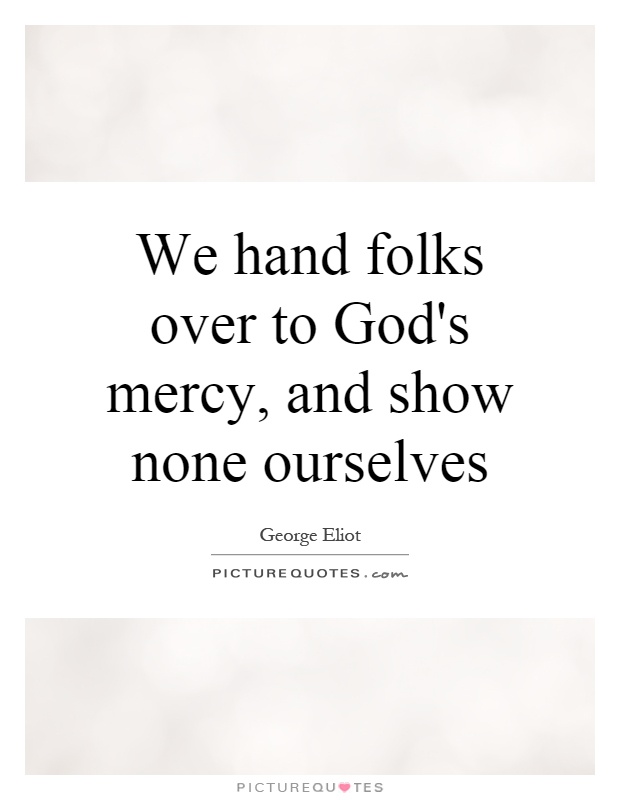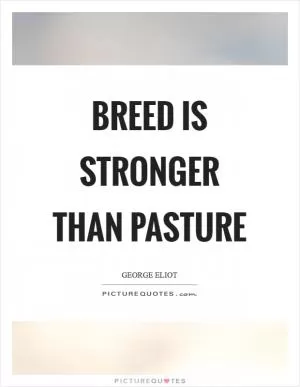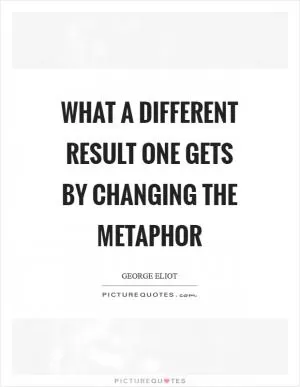We hand folks over to God's mercy, and show none ourselves

We hand folks over to God's mercy, and show none ourselves
In the quote “We hand folks over to God's mercy, and show none ourselves,” George Eliot captures the essence of human nature and the complexities of morality. This sentiment reflects the idea that people often rely on divine intervention or judgment to absolve themselves of responsibility for their actions, while simultaneously failing to show compassion or forgiveness to others.George Eliot, the pen name of Mary Ann Evans, was a prominent Victorian novelist known for her insightful and thought-provoking works. Her writing often delved into the moral dilemmas and ethical quandaries faced by individuals in society. In this particular quote, Eliot highlights the hypocrisy and self-righteousness that can be found in human behavior.
The notion of “handing folks over to God's mercy” suggests a relinquishing of control and a belief in a higher power to mete out justice or forgiveness. It implies a sense of resignation or absolution, as if one can wash their hands of any guilt or wrongdoing by leaving it up to God to judge. This attitude can be seen as a way for individuals to avoid taking responsibility for their actions and to shift the burden of judgment onto a higher authority.
On the other hand, the phrase “and show none ourselves” speaks to the lack of empathy or compassion that can accompany this attitude. While people may be quick to seek forgiveness or mercy from God, they may be less inclined to extend the same grace to others. This lack of empathy can lead to a judgmental and unforgiving mindset, where individuals are quick to condemn others for their perceived faults or transgressions.
Overall, George Eliot’s quote serves as a powerful reminder of the importance of compassion, forgiveness, and humility in our interactions with others. It challenges us to examine our own behavior and attitudes towards those around us, and to strive for a more empathetic and understanding approach to human relationships. By recognizing our own shortcomings and showing kindness and mercy to others, we can create a more compassionate and just society.












 Friendship Quotes
Friendship Quotes Love Quotes
Love Quotes Life Quotes
Life Quotes Funny Quotes
Funny Quotes Motivational Quotes
Motivational Quotes Inspirational Quotes
Inspirational Quotes